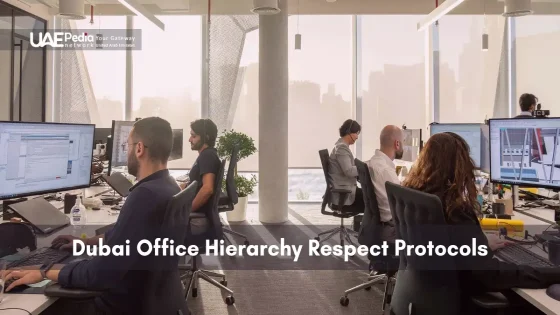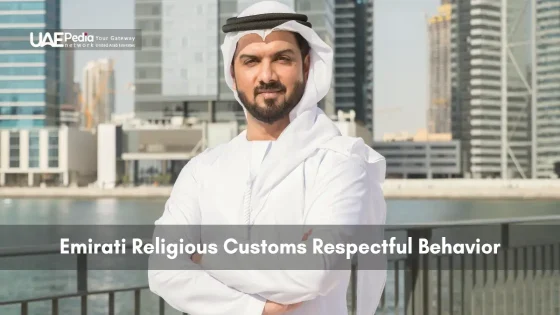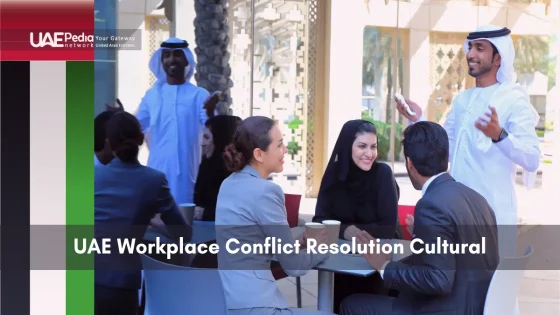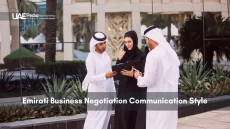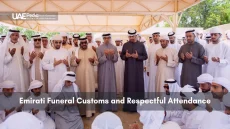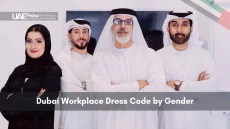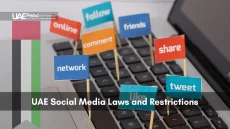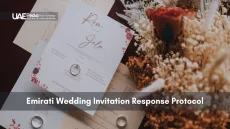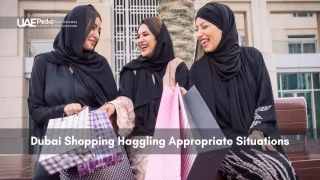What if blending time-honored traditions with 21st-century efficiency isn’t just polite—it’s the secret to thriving in the Emirates’ corporate world? The UAE’s business environment operates like a carefully choreographed dance, where understanding unspoken rules can make or break opportunities.
Corporate structures here prioritize seniority and relationships, a legacy of Bedouin values adapted to skyscrapers. Experts like Gayatri Bhaumik note that age and social connections often carry more weight than job titles alone. Yet modern startups coexist with family-owned enterprises, creating a dynamic mix of old and new.
This guide unpacks how cultural awareness shapes daily interactions, from decision-making chains to networking in majlis gatherings. We’ll explore why the professional services sector thrives on these nuances, helping newcomers avoid missteps while building trust.
The UAE corporate environment integrates Bedouin-inspired respect for seniority with modern operational frameworks. Formal hierarchy governs decision paths—76 % of firms employ top-down approval processes—so proposals flow from junior staff through managers to executives. Protocols such as title usage (Dr., Sheikh), timed greetings (“As-salaam Alaikum”), and punctuality underscore respect and reinforce trust. Meetings are scheduled around prayer intervals, and communication blends printed agendas with digital briefs to balance tradition and efficiency.
Daily practices embed cultural norms into workflows: deferential seating and document exchanges, question-framed suggestions, and majlis-style networking complement global tools like shared online workspaces and QR-enabled business cards. These aligned protocols help newcomers and expatriates navigate unspoken rules, avoid etiquette breaches, and establish durable relationships within the Emirates’ professional services and beyond.
- Hierarchy isn’t bureaucracy—it’s about honoring experience
- Respectful communication bridges tradition and innovation
- Practical strategies align global standards with local expectations
Navigating UAE’s Unique Business Culture
Navigating the UAE’s corporate world is like sipping Arabic coffee while scrolling a smartphone—both ritual and revolution. Here, business thrives when global practices harmonize with cultural roots. Think of it as a sandstorm meeting a skyscraper: unpredictable, but transformative for those who adapt.
Embracing Traditions and Modernity
Picture a tech startup founder discussing AI over dates with Emirati elders. This blend defines UAE business culture. Formal greetings like “As-salaam Alaikum” set the tone, while using titles (Dr., Sheikh) shows respect. Yet modern ventures thrive by balancing these customs with rapid innovation.
Data shows 83% of UAE firms prioritize relationship-building through shared meals or majlis gatherings. One logistics CEO shared: “We close deals faster when we honor traditions first—it’s the unspoken handshake.” This duality creates opportunities for those willing to learn UAE business etiquette while embracing change.
Understanding Local Norms and Values
Dress codes whisper volumes here. Lightweight suits work, but avoid exposed shoulders or tight fits—modesty matters. During Ramadan, daytime meetings slow, while evenings buzz with collaborative energy.
- Greet senior members first in group settings
- Pause conversations during prayer times
- Celebrate diversity without stereotyping
Expatriates bring fresh ideas, but lasting credibility comes from understanding Bedouin-inspired values: loyalty, patience, and face-to-face communication. As one HR director noted: “We’re building bridges, not just transactions.”
Read More:
Understanding the Role of Hierarchy in UAE Offices
Imagine a falconry show: precision-guided movements where every bird knows its place in the sky. That’s how hierarchy operates here—structured yet dynamic. In the UAE’s corporate world, authority flows vertically, shaped by cultural values that honor wisdom and long-standing relationships.
Vertical Structures and Decision-Making
Decisions often start at the top. A 2023 Gulf Business report found 76% of local firms use top-down approval processes. Junior staff typically present ideas through managers rather than directly to executives. As a finance director in Abu Dhabi shared: “Suggestions are welcome, but final calls? That’s leadership territory.”
| Decision Style | UAE Companies | Western Companies |
|---|---|---|
| Approval Speed | Layered review | Direct delegation |
| Idea Source | Senior-led | Team-driven |
The Impact of Age, Experience, and Connections
Your wasta (influence) matters here. Seasoned professionals often hold sway, with family names opening doors in sectors like construction and trade. A tech startup founder noted: “We partnered faster once an Emirati advisor joined—their network became our runway.”
- Address senior team members first in meetings
- Frame suggestions as questions: “Would this approach align with your vision?”
- Build rapport through industry events—coffee chats over karak tea work wonders
While global firms bring flat structures, adapting to local business practices means balancing innovation with deference. Think of it as adding modern navigation to a desert caravan—honor the pathfinders while charting new routes.
Mastering dubai office hierarchy respect protocols
Picture a sunrise over the desert—each grain of sand plays its part in shaping the dunes. Similarly, daily gestures build professional relationships in the UAE’s corporate landscape. Here, how you conduct yourself matters as much as what you achieve.
Implementing Daily Respectful Practices
Start mornings with a warm “As-salaam Alaikum” to colleagues—it’s the cultural handshake that opens doors. A 2023 survey by Gulf Talent found 68% of professionals in the Middle East view punctuality as a non-negotiable mark of reliability. Arrive five minutes early for meetings, and watch how local partners notice this silent commitment.
| Practice | Traditional Approach | Modern Adaptation |
|---|---|---|
| Greetings | Handshake with right hand | Virtual meeting salutations |
| Meeting Prep | Printed agendas | Shared digital docs pre-call |
| Feedback | Private conversations | Praise publicly, critique discreetly |
At corporate events, mirror the room’s energy. A marketing director shared: “I gained trust by waiting for elders to sit first at a product launch—it showed I valued their presence.” Simple acts like passing documents with both hands or avoiding phone checks during conversations reinforce your grasp of business culture.
Three habits to weave into your routine:
- Greet senior team members by title + last name until invited otherwise
- Keep voice calm during debates—passion is welcome, raised voices aren’t
- Send follow-up notes after networking events; mention shared interests
These practices aren’t just rules—they’re the invisible threads weaving trust in the United Arab Emirates’ fast-paced business world. Master them, and you’ll find doors opening as smoothly as sunset over the Arabian Gulf.
Communicating with Courtesy and Clarity
Think of business exchanges here as a traditional ayyala dance—every gesture and word holds meaning. In the UAE’s corporate world, polished communication blends formal respect with modern clarity. It’s less about rigid rules and more about showing cultural awareness through thoughtful interactions.
Formal Greetings and Appropriate Language
Start conversations with “As-salaam Alaikum”—this Arabic greeting signals respect. Use titles like “Sheikh” or “Dr.” until invited to switch to first names. A 2023 survey by Bayt.com found 79% of UAE professionals consider proper titles essential for building relationships.
| Communication Element | Traditional Approach | Modern Adaptation |
|---|---|---|
| Greetings | Handshake with right hand only | Brief nod in virtual meetings |
| Language Style | Formal Arabic phrases | Clear English with local terms |
| Feedback Delivery | Indirect suggestions | “Sandwich method” (praise-critique-praise) |
Utilizing Body Language and Gestures
Maintain eye contact without staring—it shows confidence balanced with respect. Avoid crossing arms or pointing fingers, which can seem confrontational. As a logistics manager in Abu Dhabi advised: “Let senior colleagues extend hands first. It’s like allowing the host to serve tea—a sign you honor their role.”
Three quick tips for mixed-gender meetings:
- Limit physical contact unless initiated
- Angle your body slightly sideways during conversations
- Use open palm gestures when explaining ideas
These subtle cues build trust faster than any PowerPoint deck. Remember, in the United Arab Emirates, how you speak often speaks louder than what you say.
“Read Also: Emirati Wedding Invitation Response Protocol“
Adapting to Local Dress and Professional Appearance
Your outfit is your silent passport here—a visual handshake that says “I understand” before you speak. In the UAE’s corporate world, attire isn’t just fabric; it’s a language of cultural awareness and mutual respect. Let’s decode this sartorial vocabulary so you dress for success, not stress.
Dress Code Guidelines for Men and Women
Think of business wear as a bridge between global standards and local values. Men typically opt for tailored suits in light fabrics—think charcoal or navy, not black-tie formal. Women lean toward knee-length skirts or trousers paired with blouses that cover shoulders. As a Dubai-based HR manager advised: “Avoid sheer fabrics or tight fits. Modesty here isn’t restrictive—it’s professional armor.”
| Attire Type | Traditional Influence | Modern Adaptation |
|---|---|---|
| Men’s Wear | Dishdasha (ankle-length robe) | Lightweight suits, neutral tones |
| Women’s Wear | Abaya (flowing cloak) | Blazers with ¾ sleeves, midi dresses |
Three rules to remember:
- Save bold patterns for after-hours—solid colors signal professionalism
- Keep accessories minimal; a classic watch outshines flashy jewelry
- Closed-toe shoes work best, even in creative industries
While Emirati colleagues might wear traditional garments daily, expats aren’t expected to adopt them. Instead, mirror the formality level. A marketing director shared: “Clients noticed when I swapped sundresses for linen suits—it built instant credibility.” For events beyond the office, explore holiday attire guidelines to balance festivity with decorum.
Dressing well here isn’t vanity—it’s strategy. When your look aligns with local business culture, you’re not just wearing clothes. You’re weaving trust, one thread at a time.
Scheduling Meetings Around Local Customs and Prayer Times
Think of the UAE’s business week as a carefully tuned orchestra—every meeting and deadline plays in rhythm with cultural cadences. Here, time isn’t just tracked; it’s respected through traditions that shape daily workflows.
Harmonizing Schedules With Cultural Rhythms
Five daily prayer times punctuate the workday like natural intermissions. Smart planners avoid booking meetings during these 15-30 minute windows, especially mid-afternoon (Asr) and sunset (Maghrib). A logistics manager in Abu Dhabi shared:
“We block calendars for prayer breaks—it shows we value our team’s spiritual needs.”
| Prayer Time | Typical Window | Meeting Tip |
|---|---|---|
| Fajr | Pre-dawn | Rarely impacts schedules |
| Dhuhr | Midday | Post-lunch slots work best |
| Asr | Mid-afternoon | Avoid 3-4 PM calls |
During Ramadan, the tempo slows. Workdays shorten by 2-3 hours, and energy peaks after sunset. Business culture here thrives on flexibility—morning huddles gain traction while afternoon deadlines stretch. One consultant advised: “Shift brainstorming sessions to post-iftar hours. Teams bring fresh ideas after breaking fast.”
Three strategies keep projects on track:
- Build buffer days into Ramadan timelines
- Use cloud tools for asynchronous updates
- Confirm availability before sending invites
Punctuality still matters—arriving late signals disrespect. But the country’s blend of tradition and modernity means agendas might flex. As a tech founder noted: “We start meetings promptly, but extend discussions over karak tea if connections deepen.”
Building Trust through Effective Networking
Imagine a bustling souk where deals hinge on shared stories as much as spreadsheets. In the UAE’s business environment, trust grows through personal bonds forged at social events—not just boardrooms. A 2023 LinkedIn report found 72% of professionals here attribute career breakthroughs to relationships nurtured over coffee or cultural exchanges.
Leveraging Social Events and Small Talk
Industry mixers and cultural festivals become invisible conference rooms. At gatherings hosted by local business councils, conversations about family or regional heritage often precede deal-making. As a Sharjah-based entrepreneur noted:
“We don’t rush to pitch. First, we listen—to their stories, their tea preferences, their vision for the United Arab.”
| Networking Scenario | Traditional Approach | Modern Twist |
|---|---|---|
| Initial Contact | Majlis gatherings | LinkedIn introductions |
| Follow-Up | Handwritten notes | Personalized video messages |
| Relationship Building | Shared meals | Co-working space collaborations |
Three strategies to turn small talk into big opportunities:
- Ask about local traditions before discussing business (“How does your team celebrate Eid?”)
- Attend art exhibitions or food festivals—these venues ease formal tensions
- Exchange contacts via QR code business cards, blending tech with courtesy
Patience pays here. A logistics manager shared: “My Emirati partner invited me to his daughter’s wedding after two years of lunches. That’s when our $2M contract began.” By valuing culture over quick closes, you’ll find the UAE’s business etiquette rewards genuine curiosity with lasting connections.
Incorporating Corporate Social Responsibility into Practices
Imagine stitching a community tapestry—every thread strengthens the whole. In the UAE’s business environment, CSR has evolved from optional goodwill to strategic necessity. New federal regulations now require companies to disclose environmental and social impacts, with tax breaks for those exceeding benchmarks.
Aligning CSR with Local Business Values
Successful initiatives here mirror Bedouin values of collective care. A 2023 PwC report found 68% of Emirati consumers prefer brands supporting local causes. Take Al Ghurair Group’s youth mentorship programs—they’ve trained 5,000 Emiratis in tech skills since 2020.
| Initiative Type | Traditional Approach | Modern Adaptation |
|---|---|---|
| Community Support | Charity donations | Skills partnerships with schools |
| Environmental Care | Beach cleanups | Renewable energy investments |
| Employee Engagement | Annual volunteer day | Paid hours for passion projects |
Three ways to weave CSR into daily business practices:
- Map projects to UAE Vision 2031 goals like sustainability
- Involve employees in choosing causes through surveys
- Partner with local artisans for corporate gifts
A Dubai logistics CEO shared:
“Our driver training program reduced accidents by 40% while creating opportunities for rural youth. Clients now request our sustainability reports before contracts.”
By aligning CSR with cultural priorities—from preserving heritage to empowering youth—companies gain trust in the United Arab Emirates. It’s not just about compliance; it’s about crafting legacies that benefit both society and the bottom line.
Addressing Common Challenges in the UAE Business Environment
Navigating UAE negotiations feels like bartering in a spice souk—every exchange has layers of meaning beneath the surface. Here, business success hinges on balancing patience with strategy. Cultural diversity fuels innovation but also requires finesse in communication styles.
Managing Negotiations and Resolving Disputes
Deals here often move at the pace of a desert breeze—steady but unhurried. A 2023 Gulf Business Council report found 64% of cross-border agreements take 3-6 months to finalize. This reflects the local emphasis on building trust before signing contracts.
| Negotiation Factor | UAE Approach | Western Approach |
|---|---|---|
| Time Investment | Relationship-first | Efficiency-driven |
| Conflict Resolution | Mediated discussions | Direct confrontation |
| Decision-Making | Consensus-building | Top-down authority |
Cultural diversity can create communication tangles. A logistics firm in Abu Dhabi shared:
“We nearly lost a client by emailing demands. When we switched to face-to-face meetings and tea service, compromises flowed naturally.”
Three strategies smooth the process:
- Schedule informal coffee chats before formal talks
- Use “we” language to emphasize shared goals
- Allow extra time for translations and clarifications
By viewing challenges as cultural bridges rather than barriers, professionals unlock the benefits of the UAE’s dynamic business environment. It’s about dancing with the rhythm of local culture while keeping eyes on the horizon.
Practical Office Etiquette and Daily Best Practices
Imagine presenting a business card like a master calligrapher—every gesture carries intention. In the UAE’s corporate culture, small acts weave big impressions. Let’s explore how daily practices blend tradition with modern efficiency.
Gift-Giving and Business Card Exchanges
Handing over your card? Use your right hand—it’s considered cleaner in local society. A 2023 survey by Gulf News found 81% of professionals here notice if cards are received casually. Present yours with both hands during formal meetings, and take a moment to read received cards before pocketing them.
| Exchange Type | Traditional Rule | Modern Adaptation |
|---|---|---|
| Business Cards | Arabic side facing recipient | QR codes on digital cards |
| Gifts | Dates or Arabic sweets | Branded tech accessories |
Three gift guidelines:
- Avoid alcohol or perfume—opt for luxury notebooks or artisanal coffee sets
- Wrap items in gold or green—colors symbolizing prosperity
- Present gifts privately to avoid putting recipients on the spot
Adapting to Formal and Informal Settings
Work dinners at a CEO’s villa? Keep jokes light until the host initiates humor. A Sharjah HR manager shared:
“We laugh freely at team retreats, but boardroom chats stay solution-focused.”
Adjust your communication style like switching between smartphone apps:
- Formal: Use titles, avoid slang, wait your turn to speak
- Informal: Share travel stories, ask about family (if invited)
Remember—the United Arab Emirates rewards those who polish details. Whether exchanging cards or navigating a hybrid work dinner, these practices build bridges in the region’s fast-evolving business landscape.
“Learn More About: Dubai Teacher Parent Communication Protocol“
Final Thoughts on Thriving in the UAE Business Landscape
Charting success in the UAE’s corporate world resembles navigating a vibrant marketplace—where ancient trade routes intersect with digital highways. Mastering this business landscape means blending cultural fluency with agile thinking. Those who thrive here don’t just adapt; they evolve alongside the region’s skyline-fast transformations.
Key strategies emerge from our guide: honoring experience through clear communication, aligning CSR with community values, and dressing to reflect professional courtesy. These aren’t checkboxes—they’re threads in a larger tapestry of trust-building. As opportunities multiply across sectors like tech and sustainability, cultural awareness becomes your compass.
Three pillars sustain long-term growth:
- Continuous learning through local networks and industry events
- Balancing global standards with Emirati social priorities
- Viewing every interaction as a chance to deepen relationships
The UAE rewards those who approach its business environment with curiosity and flexibility. Whether you’re launching a startup or leading a multinational team, remember: progress here flows when tradition and innovation walk hand-in-hand. Now’s the time to step forward—equipped with insights, open to discovery, and ready to contribute to this ever-unfolding story.
Decisions often flow top-down, with senior leaders holding significant authority. Building relationships with key decision-makers and demonstrating patience shows respect for this structure while navigating processes smoothly.
Opt for conservative attire—dark suits for men, modest dresses or pantsuits for women. Avoid sheer fabrics or short hemlines. In Abu Dhabi, even stricter cultural norms apply, so err on the side of formality.
Meetings may pause for prayers, especially during Ramadan. Always check the Islamic calendar and confirm agendas in advance. Flexibility signals cultural awareness—avoid planning critical discussions right before iftar or midday prayers.
Absolutely. Sharing coffee or dates in a majlis (traditional seating area) builds trust before diving into agendas. Ask about family or local traditions—it’s not just polite, it’s foundational for lasting partnerships.
Yes! Emirati women hold prominent positions across sectors. Foreign professionals should lead with competence while respecting local norms—think confidence without overt assertiveness. Titles matter, so use them during introductions.
Public confrontations damage rapport. Present concerns diplomatically, often through intermediaries if tensions rise. Phrases like “Perhaps we can explore alternatives” maintain harmony while addressing issues.
Small tokens like premium dates or artisanal sweets work post-meeting. Avoid alcohol or overly personal items. Present gifts with your right hand—it’s a sign of respect deeply rooted in regional customs.
